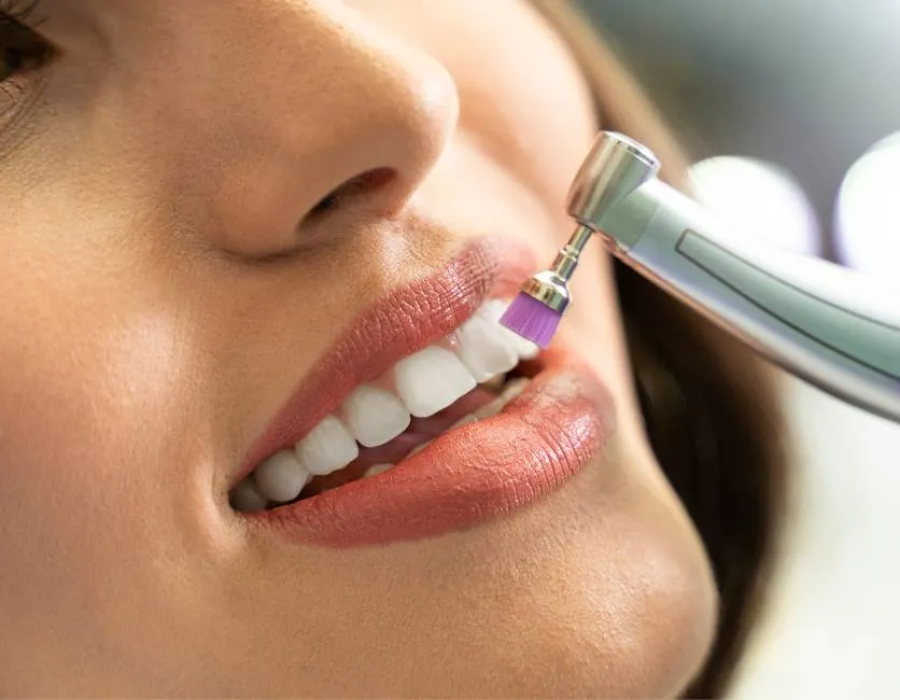Teeth scaling is a professional dental procedure that plays a vital role in improving oral health by targeting stubborn plaque and tartar buildup. Unlike regular brushing and flossing, which only clean the surface of your teeth, Teeth Polishing & Scaling Treatment goes deeper—removing hardened deposits below the gum line that contribute to gum disease, tooth decay, and bad breath. By having teeth scaling done regularly, patients can achieve healthier gums, stronger teeth, and a cleaner mouth overall.
What Is Teeth Scaling?
Teeth scaling is part of a deep cleaning treatment often recommended by dentists for individuals showing signs of gum disease or excessive plaque buildup. This procedure involves the use of special tools—either manual scalers or ultrasonic devices—to remove plaque and tartar (also called calculus) from the surfaces of the teeth and beneath the gum line. Scaling is especially important for patients with:
- Early signs of gingivitis or periodontitis
- Bleeding or inflamed gums
- Persistent bad breath
- Receding gum lines due to infection
By removing the harmful bacteria trapped beneath the gums, teeth scaling can stop the progression of gum disease and promote healthier tissue.
Benefits of Teeth Scaling for Gums and Teeth:
The primary goal of teeth scaling is to restore gum and bone health by eliminating irritants. This procedure offers a wide range of benefits for overall oral wellness:
- Reduces inflammation and bleeding in the gums
- Helps reattach gums to the teeth by cleaning periodontal pockets
- Prevents tooth mobility and potential tooth loss
- Eliminates the bacteria responsible for bad breath
- Improves your body’s response to oral hygiene
When performed early, teeth scaling can reverse gum disease and protect the structural integrity of your teeth for years to come.
How Scaling Affects Overall Health?
Poor oral hygiene has been linked to a range of systemic health issues, such as heart disease, diabetes, and respiratory infections. Teeth scaling not only enhances oral health but can also positively impact general health. This is because:
- It reduces the spread of harmful bacteria into the bloodstream
- Lowers the risk of chronic inflammation in the body
- Supports better glycemic control in diabetic patients
- Decreases the risk of cardiovascular complications linked to gum infections
By maintaining a clean oral environment, patients can lower their chances of developing other serious health problems.
What to Expect During a Scaling Appointment?
Teeth Polishing & Scaling is a straightforward, in-office procedure typically done by a dentist or dental hygienist. Depending on the severity of buildup, one or more appointments may be needed. A typical session includes:
- Examination of the gums and periodontal pockets
- Use of manual or ultrasonic instruments to remove tartar
- Gentle cleaning of the tooth roots (root planing, if needed)
- Optional polishing and fluoride treatment after scaling
Most patients experience little to no discomfort, though some may feel mild sensitivity or gum tenderness that fades quickly. Local anesthesia may be used if deep cleaning is required.
Maintaining Oral Health After Scaling:
After a teeth scaling procedure, it’s essential to adopt good oral hygiene habits to prevent plaque from returning. Dentists recommend the following for long-term results:
- Brush your teeth at least twice a day with fluoride toothpaste
- Floss daily to clean between teeth and below the gum line
- Rinse with an antibacterial mouthwash to control bacteria
- Avoid smoking or tobacco, which worsens gum disease
- Visit your dentist every 6 months for checkups and cleanings
Teeth scaling is not a one-time fix—it’s a preventive measure that must be paired with daily care. When followed correctly, patients enjoy improved gum health, fresher breath, and reduced dental issues in the long term.





Comments